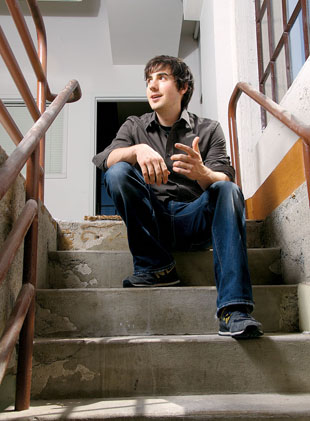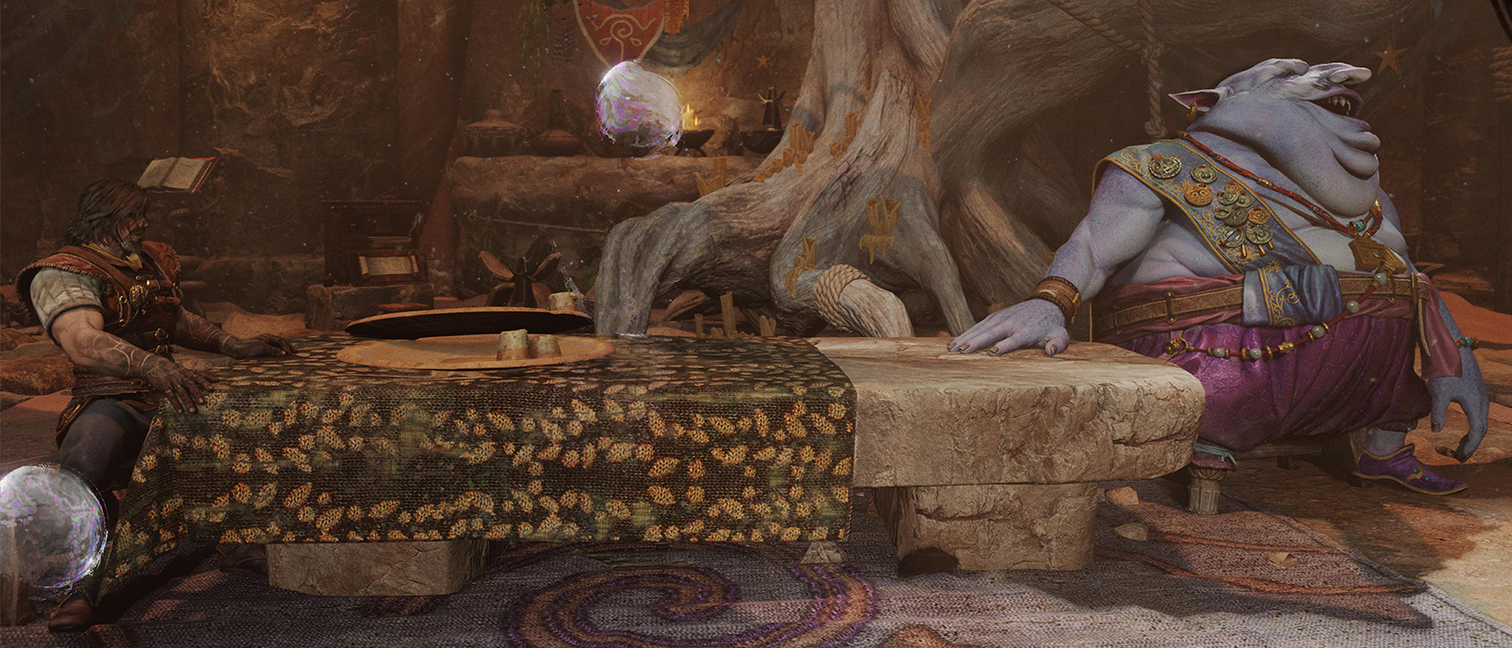Kevin Rose
Digg is the world’s most popular user-generated news site. A recent revolt showed that it really is run by its community. Founder Kevin Rose tells Oliver Lindberg how he experienced the most turbulent day in Digg’s history, and what his users want him to do next
When Kevin Rose boarded a plane to fly from San Francisco to Los Angeles on 1 May, he had no idea that a storm was brewing. He was aware that someone had posted a story on Digg, linking to an obscure key that could enable you to crack anti-piracy measures on high-definition DVDs. He knew that the story was popular on Digg, but the site’s chief executive, Jay Adelson, had taken it down to comply with the cease and desist letter Digg had received from the Advanced Access Content System consortium that represents HD DVD. This should have been it – and he assumed it was – but Digg’s community had something else in mind. They went for a revolt.
“It was crazy, because I was on a flight,” recalls Digg’s 30-year-old founder. “When they took over the homepage, I was in the air. When I landed, I got a call from Jay, our CEO, and he said the homepage was filled with these stories.”

Digg’s community had taken issue with the removal of the story; large numbers of users regarded it as a capitulation to corporate interests, and an assault on free speech. The result? These users voted with their feet. Code suddenly popped up everywhere, not only on Digg but all over the web. Some guy even turned the code into a song and posted it to YouTube. Temporarily, Digg crashed under the weight of new postings, including the code, and users posting the decryption key were banned.
If a mass of people decides that something is important enough to fill the front page with, we have no technology that can really stop it other than shutting down the site
Rose says he took the community’s feedback and realised that it wasn’t about pushing pro-piracy (the numbers had never been turned into an application and nobody even knew if they worked). “It got to a point where we threw our hands up in the air,” he explains. “It was very clear that this was now in the public domain. So, we made a blog post saying we’re not taking any of these down. It was pretty interesting to see a mass of people so passionate about something. That’s the way we built the system. If a mass of people decides that something is important enough to fill the front page with, we have no technology that can really stop it other than shutting down the site. The system works – they’ve had their voice heard.”
The decision to listen to Digg’s community seems to have been right. In his blog post, Rose said: “If we lose, then what the hell, at least we died trying” – but it doesn’t look like they will. Since that day, Digg hasn’t received any more letters from the AACS and Rose thinks that it’s probably passed: “You can’t send out a million cease and desist letters.”
The rise of Digg
So, the online community is powerful, even more powerful than Rose realised when he originally planned Digg. “One of the craziest things is the idea that you own this website, but when you wake up in the morning, you have no idea what’s going to be on the front page of the site you own.” He laughs: “I have to say, initially, that was hard for me to get used to. It’s still a really weird thing to pull up your own site and wonder what’s on there.”
Rose risked a lot to get Digg off the ground, but he sacrificed his social life, spent most of his life savings and lost his girlfriend on the way. “Itjust felt like a good idea,” he says about the launch in November 2004. “I could tell by the way that people were starting to interact with each other, using sites like Delicious and Slashdot, that they were going to want to have a say in what was newsonline.”
The revolt caused a little problem for a day, but it also shows that Rose’s efforts were worthwhile. The community runs the site and it’s more popular than ever. It consistently stays in the top 25 of US traffic ranks, according to Alexa, and it has more than one million registered users who post around 4,000 to 5,000 stories every day. Even the accompanying podcast, Diggnation, is a hit. Also proof that the Digg formula works is the sheer number of Digg clones all over the world. “I saw a Digg clone site for medical papers, where doctors get together and vote on them,” Rose enthuses. “When I see the concept being used for stuff like that, I just think it’s amazing – it’s awesome!”
I don’t think you can ever be upset when you’re on the cover of BusinessWeek, but it was kind of hard explaining to my parents that I didn’t have that money
Rose has turned into an internet celebrity. Last year, BusinessWeek put him on the cover with the line “How this kid made $60million in 18 months.” The figure was Digg’s estimated value. In fact, while things are going great, the site is still not profitable, and Rose dampened down the hysteria by claiming on the This Week in Tech podcast that he couldn’t afford a couch in his apartment and he wasn’t even a “thousand-aire”. “I don’t think you can ever be upset when you’re on the cover of BusinessWeek,” Rose laughs. “But it was kind of hard explaining to my parents that I didn’t have that money.” BusinessWeek also said he now had “rock star status”. Does he feel like one? “Oh, I don’t know about that. We’ve come a long way, but I don’t think geeks can ever be rock stars. I used to get made fun of in high school for liking computers, and it’s not quite that bad any more. But we’re still a long way away from being rock stars.”
Looking ahead
Digg is a fairly small company (Rose says it has 23 or 24 staff now), and the plan is to keep it that way. User experience is very important and money is purely made via advertising – Rose never wanted to charge for any portion of the site. So, the team is taking its time to grow the site organically without thinking of selling any time soon. Rose is still actively involved in planning the next versions of Digg and working with Daniel Burka, Digg’s creative director, on designing and creating new features. “We really strive to create a platform where users can come and share any type of content with each other. Right now, that’s news, videos and podcasts, but in the future, we really want it to be a place where you can share and promote all different types of content, anywhere a large collaborative filter is needed to sort out and sift through an overabundance of information. Our community is also pushing us in different directions. Users want to see us do Digg images or Digg coffee shops – you name it.”

Unsurprisingly, Rose recently announced that Digg will expand into images as well as product and service reviews. We’ll also see improved communication tools that enable people to exchange information and control the content of the site. There’ll be a little revamp of the beta site for podcasting, but more thananything, the team is putting a lot of time into developing a recommendation engine that will eventually suggest stories and friends. “We’re gathering all different types of data about you when you digg a story,” Rose explains, “and we’re going to use that to make recommendations of stories to you. But not only stories, also friends. We’ll put you in touch with people that may have similar interests, and people that you may agree with all the time on Digg, but you don’t even know it.”
One thing’s for sure, Kevin Rose has got his finger on the pulse. How rich Digg will eventually make him remains to be seen, but in a world where almost everybody you know is on Facebook, and social networks are getting bigger and bigger, Digg won’t go away. This is the era of user-generated content. Digg will continue to expand because people love to share any type of information online, and be in charge of it. Next stop: Digg coffee shops.

Thank you for reading 5 articles this month* Join now for unlimited access
Enjoy your first month for just £1 / $1 / €1
*Read 5 free articles per month without a subscription

Join now for unlimited access
Try first month for just £1 / $1 / €1
Get the Creative Bloq Newsletter
Daily design news, reviews, how-tos and more, as picked by the editors.

The Creative Bloq team is made up of a group of art and design enthusiasts, and has changed and evolved since Creative Bloq began back in 2012. The current website team consists of eight full-time members of staff: Editor Georgia Coggan, Deputy Editor Rosie Hilder, Ecommerce Editor Beren Neale, Senior News Editor Daniel Piper, Editor, Digital Art and 3D Ian Dean, Tech Reviews Editor Erlingur Einarsson, Ecommerce Writer Beth Nicholls and Staff Writer Natalie Fear, as well as a roster of freelancers from around the world. The ImagineFX magazine team also pitch in, ensuring that content from leading digital art publication ImagineFX is represented on Creative Bloq.
